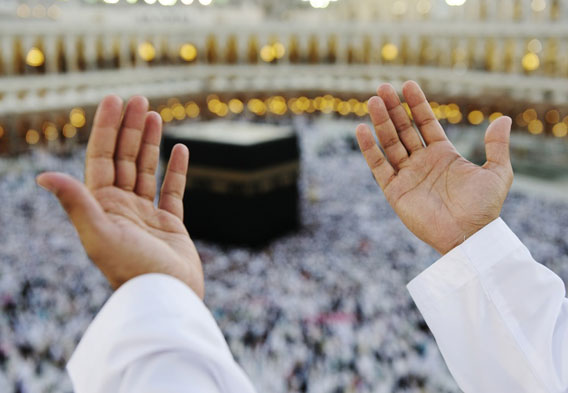What is the philosophy behind “joining good and forbidding evil”?
 One of the obligations of the religion of Islam is joining good and forbidding evil.
One of the obligations of the religion of Islam is joining good and forbidding evil.
The holy Quran says about the importance of these two obligations in chapter Ali- Imraan verse 110:
كُنتُمْ خَيْرَ أُمَّةٍ أُخْرِجَتْ لِلنَّاسِ تَأْمُرُونَ بِالْمَعْرُوفِ وَتَنْهَوْنَ عَنِ الْمُنكَرِ وَتُؤْمِنُونَ بِاللّهِ
“You are the best nation ever to be brought forth for people. You order honor and forbid dishonor, and you believe in Allah”.
The importance of these two obligations is to the extent that Imam Baghir peace be upon him said:
إِنَّ الْأَمْرَ بِالْمَعْرُوفِ وَ النَّهْيَ عَنِ الْمُنْكَرِ سَبِيلُ الْأَنْبِيَاءِ وَ مِنْهَاجُ الصُّلَحَاءِ فَرِيضَةٌ عَظِيمَةٌ بِهَا تُقَامُ الْفَرَائِضُ وَ تَأْمَنُ الْمَذَاهِبَ …
“Verily the joining good and forbidding the evil is the path of the prophets and the procedure of the righteous, the great obligations that with them, the obligations are raised and the religions become safe …”
The holy Prophet of Islam describes the philosophy of our topic within an interesting example. He said:
A sinner among the people is like someone that gets on a ship with a group, and in the middle of the sea, he starts to hole his place in the ship. If others do not prevent him from doing this dangerous act, the water will penetrate the ship and all will be sunken.
From this meaningful likening, we understand the necessity of the observance of the society members on each other and the members of the society are free till their freedom does not harm others or harm the religion or personality of others.
The history of the importance of our discussion refers to the creation of Adam, because he was the first one to join good and forbid evil, because these two are the main missions of the prophets throughout the history.
Allah said in the holy Quran in chapter Aali- Imraan verse 104:
وَلْتَكُن مِّنكُمْ أُمَّةٌ يَدْعُونَ إِلَى الْخَيْرِ وَيَأْمُرُونَ بِالْمَعْرُوفِ وَيَنْهَوْنَ عَنِ الْمُنكَرِ وَأُوْلَئِكَ هُمُ الْمُفْلِحُونَ
“Let there be one nation of you that shall call to righteousness, ordering honor, and forbidding dishonor. Those are the prosperous”.
There is a Narration from Imam Ali peace be upon him that says:
“The one who leaves denying (being unpleased with) the evil (act) with his/her heart and hand and tongue, he/she is (like) a dead among the alive.”
Everything that we do as our religious duties, is given and taught to us through teachings of our parents and teachers or Islamic scholars or the mass media, or books etc. and all of these matters are different ways of our subject.
Another point here is that if we see someone who is doing something wrong, if no one notifies him/her of the wrongness of that action, he/she may never get aware of that and it can harm him/her as the danger of this material world or the hereafter. Yes, in some cases if someone does not have any knowledge about religious duties and he/she does not perform that, he/she will be excused, but it is not in every case and for everyone especially in today’s life that in a lot of situations there is not any excuse for leaving the investigations about our responsibilities towards Allah, so if someone joins him/her that good acts or forbids him/her from that evil, the reminder has done a favor to such a person.
You know observing and keeping a civilization safe, sometimes is more important than its establishment, so we see that in our Narrations, there are a lot of mentions of what makes the Islamic society to collapse, and among them is our topic.
Imam Ali peace be upon him said:
“Those who perished before you, were committing sins and their good people were not forbidding them.”
And we know that although a sin especially a sin which is done by tongue, which is committed by one individual, might seem little, but it is like the epidemic illness that can transmit to the others, and if someone joins good and forbids evil, it is a kind of defense from the society members.
Of course these two obligations must be done in a gentle way, not in a way that makes the addressee to run away from the religion.
———————
Source:
Hawzah.net









